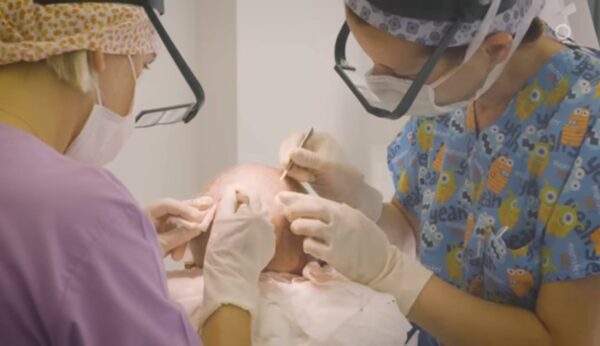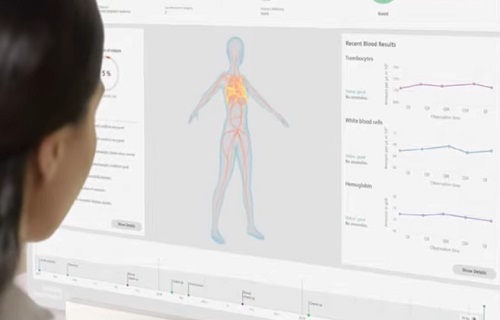What is Fasciculation?
Fasciculation is the medical term for muscle twitching. It refers to the sudden, uncontrolled and involuntary movement of a small segment of a muscle or a group of muscle fibers. This movement can be seen as a twitch or a flicker under the skin and is caused by the spontaneous activation of individual muscle fibers. Fasciculations are generally harmless and often associated with conditions such as fatigue, stress and some neurological disorders. In some cases they may also be a side effect of certain medications or a symptom of an underlying medical condition such as multiple sclerosis or motor neuron disease.
What is Tongue Fasciculation?
Tongue fasciculation is a type of muscle twitching that affects the tongue. Like other types of fasciculations, tongue fasciculations are involuntary and uncontrolled movements of muscle fibers. They may cause the tongue to quiver or twitch and in some cases, they may cause the tongue to move or change shape.
What is Fasciculation Types?
Fasciculations can be classified into several types based on their causes and underlying mechanisms. Here are some of the most common types of fasciculations:
- Benign Fasciculation Syndrome (BFS): BFS is a condition that affects the muscles and is characterized by muscle twitching and cramping. Twitching and cramping are often harmless and do not cause muscle weakness or wasting. BFS is typically not associated with any underlying medical conditions and does not progress to a more serious condition. People with BFS may experience muscle twitching and cramping in the legs, arms, eyelids, face, tongue and other muscles. BFS may be more noticeable when the affected muscle is at rest and the twitching can be relieved by movement or stimulation.
- Neuromyotonia: Neuromyotonia is a condition that affects the nerves that control the muscles and is characterized by muscle twitching, cramping and stiffness. Neuromyotonia is caused by overactivity of the nerves that control the muscles and may be associated with underlying medical conditions such as nerve damage or autoimmune diseases. People with neuromyotonia may experience muscle twitching, cramping and stiffness in the legs, arms and other muscles. Twitching and cramping may be relieved by movement or stimulation but the stiffness may persist.
- Amyotrophic Lateral Sclerosis (ALS): ALS is a neurodegenerative disorder that affects nerve cells in the brain and spinal cord. Muscle twitching and fasciculations are common symptoms of ALS and can cause to muscle weakness and wasting. Muscle weakness and wasting progress over time and can eventually affect the muscles responsible for breathing and swallowing. ALS is a progressive disease that eventually cause to death, usually from respiratory failure.
- Multiple Sclerosis (MS): MS is an autoimmune disease that affects the central nervous system, including the brain and spinal cord. Muscle twitching and fasciculations are among the symptoms of MS, which may also include muscle weakness and spasticity. MS is caused by the immune system attacking the protective covering around nerve fibers, leading to damage to the nerve fibers and lead to symptoms such as muscle twitching and fasciculations. MS can also cause other symptoms such as vision problems, trouble with coordination and balance and difficulty with memory and concentration.
- Myasthenia Gravis: Myasthenia gravis is an autoimmune disorder that affects the nervous system and causes muscle weakness and fatigue. Fasciculations are a common symptom of myasthenia gravis, which may also cause drooping eyelids, double vision and difficulty speaking. Myasthenia gravis is caused by the immune system attacking the receptors that help transmit signals from the nerve to the muscle, cause to muscle weakness and fatigue. Muscle weakness and fatigue can get worse with activity and improve with rest.


What is the Causes of Fasciculation?
Fasciculations, also known as muscle twitching, can be caused by a different factors. Here are Fasciculations causes:
- Nervous System Disorders: Motor neuron diseases such as Amyotrophic Lateral Sclerosis (ALS) and Multiple Sclerosis (MS) can lead to muscle twitching as well as weakness, atrophy and spasticity in the muscles. These conditions affect the motor neurons, which are responsible for transmitting signals from the brain to the muscles. When the motor neurons die, muscles no longer receive signals, cause to muscle twitching and other symptoms.
- Electrolyte Imbalances: Electrolytes are minerals such as potassium, calcium and magnesium that are essential for proper muscle function. An imbalance in these minerals can lead to muscle twitching. For example low levels of potassium can lead to muscle cramps and twitching, while high levels of calcium can cause muscle contractions and twitching.
- Physical Exhaustion or Overuse: Intense physical activity or overuse of a particular muscle group can cause muscle twitching. This is often a result of fatigue or dehydration, which can affect the balance of electrolytes in the body.
- Stress and Anxiety: Emotional stress and anxiety can lead to muscle twitching, especially in the eyelid or calf muscles. This is thought to be related to the release of stress hormones, which can affect muscle tone and cause twitching.
- Drugs and Medications: Some medications, such as stimulants, can lead to muscle twitching as a side effect. These drugs increase the level of neurotransmitters in the body, which can cause muscles to contract and twitch.
- Vitamin Deficiencies: Vitamins such as B1, B5 and B12 are important for proper nerve function and muscle health. Deficiency in these vitamins can lead to muscle twitching. For example deficiency in Vitamin B1 (thiamine) can cause Wernicke-Korsakoff syndrome, which can cause muscle twitching and weakness.
- Genetics: In some cases, muscle twitching may be inherited and run in families. This is often seen in inherited neurological disorders such as hereditary neuropathy with liability to pressure palsies (HNPP).
- Alcohol and Caffeine Intake: Consuming large amounts of alcohol or caffeine can cause lead to twitching. Alcohol is a central nervous system depressant, which can leadd to muscle twitching and other symptoms. Caffeine is a stimulant, which can increase neurotransmitter levels and cause muscle twitching.
Please keep in mind that muscle twitching can be a normal response to certain stimuli, such as exercise or caffeine intake.
What is the Difference Between Fasciculations and Twitches?
The terms fasciculations and twitches are often used interchangeably to describe the same phenomenon: brief, involuntary muscle contractions.
In medical terms, fasciculations refer to the spontaneous, involuntary contractions of a single muscle fiber or a small group of muscle fibers. These contractions are usually not strong enough to move the entire muscle but they can be felt or seen as a twitching under the skin.
Twitches on the other hand, refer to the brief, jerky movements of a muscle that occur spontaneously and without control. These movements are often due to the rapid, repeated firing of a nerve that innervates the muscle.
In practice, terms fasciculations and twitches are often used interchangeably to describe the same phenomenon. Both refer to brief, involuntary muscle contractions that can be felt or seen. Main difference between the two is the level of detail used to describe the muscle contraction. Fasciculations refer to the individual muscle fiber contractions but twitches refer to the observable movement of the muscle.



FAQs About Fasciculations
Here are mostly asked questions about fasciculations:
- What are fasciculations?
- Fasciculations are brief, involuntary muscle contractions that occur spontaneously and without control. They can affect a single muscle fiber or a small group of muscle fibers and can be felt or seen as a twitching under the skin.
- What causes fasciculations?
- Fasciculations can be caused by a variety of factors, including nervous system disorders, electrolyte imbalances, physical exhaustion or overuse, stress and anxiety, drugs and medications, vitamin deficiencies, genetics and alcohol and caffeine intake.
- Can fasciculations be harmful?
- In most cases, fasciculations are harmless and do not cause any harm to the body. But in some cases, they may be a sign of an underlying medical condition and should be evaluated by a doctor.
- Are fasciculations the same as muscle spasms?
- No, fasciculations and muscle spasms are different. Fasciculations are brief, involuntary contractions of a single muscle fiber or a small group of muscle fibers. Muscle spasms are sustained, involuntary contractions of a muscle that can cause pain and discomfort.
- Can fasciculations be prevented?
- In some cases, fasciculations can be prevented by addressing the underlying cause. For example, maintaining proper hydration and electrolyte balance, reducing stress and anxiety and avoiding drugs and medications that can cause muscle twitching can help prevent fasciculations.
- What should I do if I have fasciculations?
- If you have persistent fasciculations or other symptoms, it is best to seek medical advice to rule out any underlying medical conditions. Your doctor may perform a physical exam, nerve conduction studies and other tests to diagnose the cause of your fasciculations.
- Can fasciculations be treated?
- Treatment for fasciculations depends on the underlying reasons. In some cases, treatment may involve addressing an electrolyte imbalance, reducing stress and anxiety, or changing medications. In other cases, treatment may involve addressing an underlying neurological condition.
- Are fasciculations common?
- Fasciculations are a common phenomenon and can affect people of all ages. They are often benign and harmless but in some cases, they may be a sign of an underlying medical condition.
- Can fasciculations affect any muscle in the body?
- Yes, fasciculations can affect any muscle in the body, including the eyelid, calf and other muscles.
- Can fasciculations be a sign of a more serious condition?
- In some cases, fasciculations may be a sign of a more serious underlying medical condition, such as a neurological disorder or a muscle disease. If you have persistent fasciculations or other symptoms, it is best to seek medical advice to find out any underlying medical conditions.

